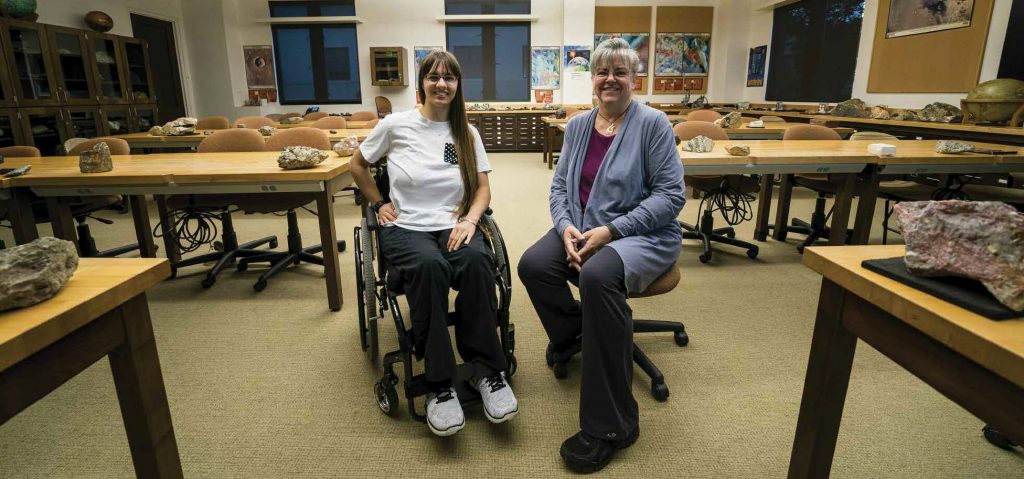 Alida Schefers ’21 usually makes the first contact with her professors to let them know she uses a wheelchair and may need accommodations. Last year, however, it was Professor of Geology Linda Reinen who contacted Schefers, inviting her to visit the classroom where Reinen’s Intro to Geohazards class would take place and talk over plans for the class field trip. Since then, the bond between Schefers and Reinen has strengthened, and the classroom experience has changed for the better—for all of Reinen’s students.
Alida Schefers ’21 usually makes the first contact with her professors to let them know she uses a wheelchair and may need accommodations. Last year, however, it was Professor of Geology Linda Reinen who contacted Schefers, inviting her to visit the classroom where Reinen’s Intro to Geohazards class would take place and talk over plans for the class field trip. Since then, the bond between Schefers and Reinen has strengthened, and the classroom experience has changed for the better—for all of Reinen’s students.
In her revamped classroom, the most important rock samples now sit at the end of narrow tables with spacious and cleared aisles that ensure a wheelchair user can move with ease. A stream table (a tall table that demonstrates stream erosion) has a camera with a bird’s-eye view. The video is played back on a large screen for all students to see the action without having to crowd around.
Reinen’s changes may seem minor, but they make the classroom accessible in a major way. It was these changes that the International Association for Geoscience Diversity (IAGD) took note of when the group honored Reinen with the 2018 Inclusive Geoscience Education and Research (IGER) Award, given to instructors who promote or implement inclusive instruction and research that supports active engagement by students with disabilities.
“If everyone were mindful of a missed opportunity for a disabled student and took the time to advocate on their behalf, then the changes would be immense,” Schefers says. “One of my favorite sayings is: ‘If everyone did a little, no one would have to do a lot.’”
